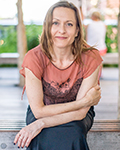2017
Amy Chazkel
- Associate Professor
- City University of New York, Queens College

Abstract
In Rio de Janeiro for much of the nineteenth century, each day the setting sun triggered a legal regime distinct from the one that prevailed in daylight. Nightfall turned an artisan carrying a tool into a criminal wielding a weapon, and a free person of color into a presumed slave. Changes in the built environment and urban culture in the early twentieth century attenuated the legal and political importance of nightfall. Rio’s nightlife attracted—and employed—multitudes from across Brazil and, eventually, the world. Yet the long history of the distinction between day and night bore a lasting impact on the city’s legal culture. This project traces the meanings of this daily transition to darkness through the nineteenth century, arguing that nightfall is a crucial yet unexplored dimension of urban modernity.

